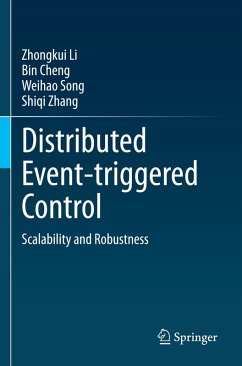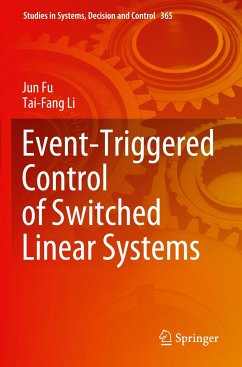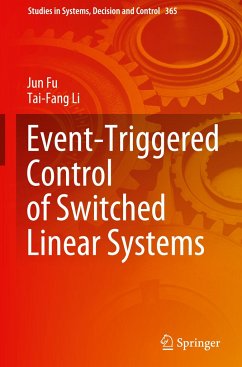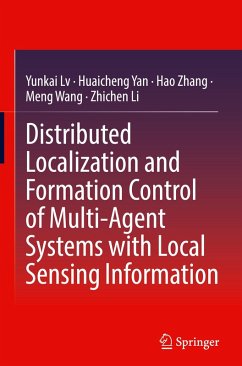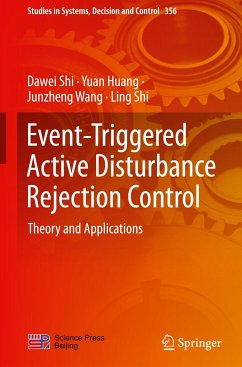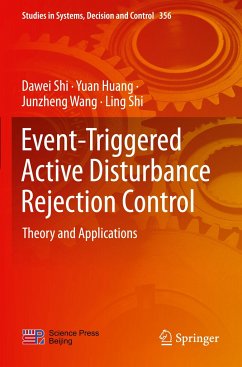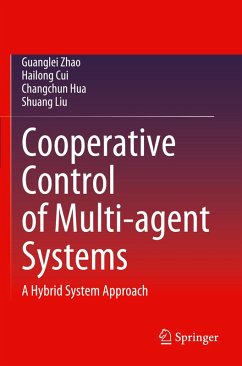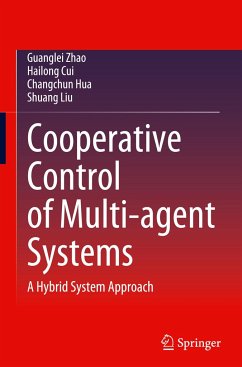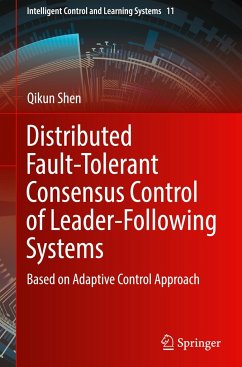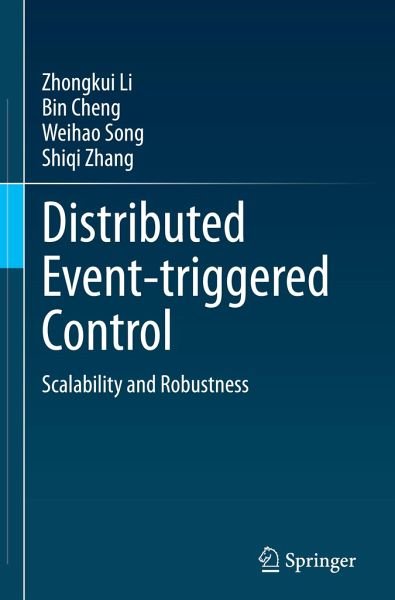
Distributed Event-triggered Control
Scalability and Robustness
Versandkostenfrei!
Versandfertig in 6-10 Tagen
106,99 €
inkl. MwSt.
Weitere Ausgaben:

PAYBACK Punkte
53 °P sammeln!
This book focuses on distributed event-triggered control of multi-agent systems, in which the event-triggering mechanism is utilized to reduce the communication frequencies in order to compensate for constrained network bandwidths, an aspect that poses significant challenges for distributed control design. The book summarizes the authors' original, systematic contributions on scalability and robustness, two core issues in distributed event-triggered control. Specifically, the book presents fully distributed adaptive event-triggered control laws; as they rely on neither continuous communication...
This book focuses on distributed event-triggered control of multi-agent systems, in which the event-triggering mechanism is utilized to reduce the communication frequencies in order to compensate for constrained network bandwidths, an aspect that poses significant challenges for distributed control design. The book summarizes the authors' original, systematic contributions on scalability and robustness, two core issues in distributed event-triggered control. Specifically, the book presents fully distributed adaptive event-triggered control laws; as they rely on neither continuous communications nor global information on the network, these laws are scalable with regard to network size and topology. Moreover, the book provides novel and robust event-triggered algorithms, which can accommodate various frequency-domain and matching uncertainties.
The results presented here are applicable to UAV swarms, automobile systems, aerospace systems, vehicle platooning, and more, and will be of considerable interest to graduate students, researchers, and engineers working on network control systems.
The results presented here are applicable to UAV swarms, automobile systems, aerospace systems, vehicle platooning, and more, and will be of considerable interest to graduate students, researchers, and engineers working on network control systems.



